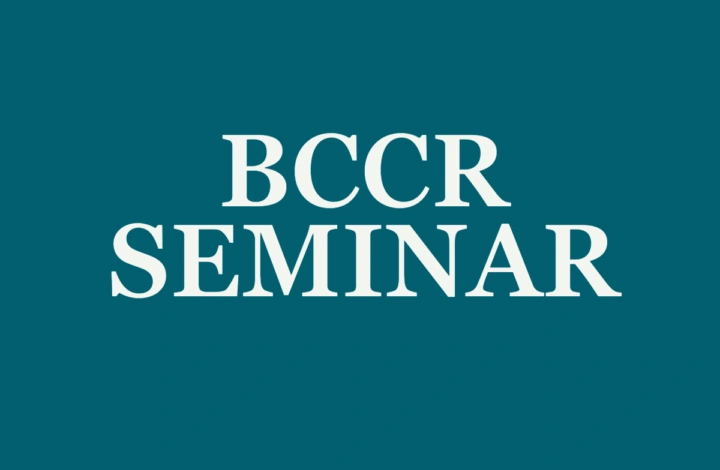Calendar
Soon-Il An: Climate Hysteresis in Earth System Model Simulations

Time
06. August 2025, 09:00-10:00
Location
BCCR seminar room 4020, Jahnebakken 5
Abstract
Achieving net-zero or negative CO₂ emissions has become a critical global objective to mitigate climate change and promote the recovery of more stable climate conditions. However, the persistence of greenhouse gas-induced warming may extend beyond expectations due to the inertial properties of the Earth system. In this study, we examine climate hysteresis using the Community Earth System Model versions CESM1.2 and CESM2.0, wherein atmospheric CO₂ concentrations or emissions are gradually increased and subsequently reduced. Utilizing a spatially explicit quantification framework, we find that approximately 89% of the Earth’s surface exhibits irreversible changes in surface temperature. These changes are particularly pronounced over the Southern Ocean, the Arctic, and the North Atlantic. A distinct cold anomaly (‘cold blob’) forms in the northern North Atlantic during the CO₂ ramp-up phase, while a warm anomaly (‘warm blob’) appears during the ramp-down phase, clearly indicating hysteretic behavior. The delayed cooling of the Southern Hemisphere, coupled with the lagged response of the Atlantic Meridional Overturning Circulation (AMOC), further contributes to pronounced hysteresis in multiple components of the climate system. These include the Intertropical Convergence Zone (ITCZ), global monsoon systems, the El Niño–Southern Oscillation (ENSO), extreme weather events, and the Indian Ocean Dipole (IOD). The study also provides mechanistic insights into the dynamic processes underlying these hysteretic responses.
Speaker information
Short biography
Soon-Il An is a Professor of Atmospheric Sciences at Yonsei University, Seoul, and Director of the Irreversible Climate Change Research Center (2018.06–2025.02), supported by the National Research Foundation of Korea. He earned his Ph.D. from Seoul National University in 1996 and previously served at the University of Hawaii. His research encompasses climate variability, ENSO dynamics, paleoclimate, and Earth system modeling, particularly focusing on hysteresis and irreversibility under anthropogenic forcing. He has authored over 200 SCI-indexed publications and contributed as a Lead Author to the IPCC AR5. Professor An has received numerous distinctions, including the National Academy of Sciences Award, the Frontiers Planet Prize, and multiple recognitions for research and teaching excellence. He is currently a member of the CLIVAR Science Steering Group.
More events
See all
Stormtracks Group Meeting
